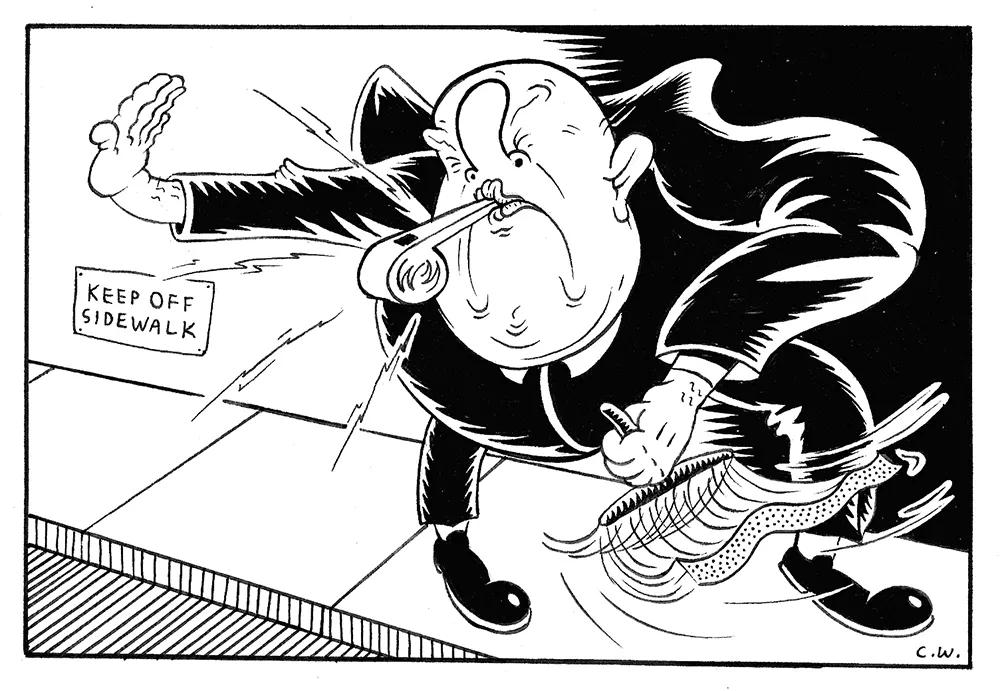The sidewalk in front of the Nordstrom in downtown Seattle is paved with what looks and feels like granite. It has the look of luxury, there's a roughness to its texture and, on sunny days, it holds the heat like a hearthstone.
The transit station directly beneath the Nordstrom — one of the busiest stops in the city — ferries people from all over the city into the heart of downtown. A good number of them walk directly into the store from an entrance in the station itself.
Many more people leave the station and step out onto those incredible sidewalks, fanning out in all directions. And no matter which direction they walk, at all hours of the day, they pass a half-dozen people who would easily get the boot in Spokane.
People sitting. Lying. Panhandling.
Some passersby stop and give money. The vast majority don't. In two days of walking back and forth, in and out of stores, I never saw a security guard or police officer shoo anyone away.
I never heard the God-awful screech from the youth-repellent devices we've installed in our city, because they don't have them in that part of Seattle. The overflowing-with-people part.
They have street kids in that part of Seattle. Lots of them, from what I could see. They just feel no need to drive them off.
Which isn't to say there isn't a fight happening in Seattle, something like the one happening here. In 2013, Seattle Weekly ran a long story on the Center City Initiative, an effort to curb many of the same nuisances driving Spokane business owners nuts, launched by many of the same sorts of interests behind our recent efforts picking on the poor.
And part of what catalyzed this in Seattle was... wanna guess? A perceived spike in crime downtown that was actually, statistically, a drop in crime. Kinda like Spokane.
The critical difference between CCI and what we've done — whether it be the panhandling ban, the sit-lie ordinance, or the Real Change campaign — is that CCI is a joint effort between business interests and homeless advocates.
It's as much about providing services as it is about being tough on "street disorder," the low-level, nonviolent annoyances that preceded our own sit-lie law.
None of the complaining businesses in the Seattle Weekly piece were anywhere near the bustling heart of the city. They were out-of-the-way places like the Dania store on Western Avenue and tourist-focused places like Argosy Cruises along the waterfront.
Doesn't that remind you of anything? Spokane's Downtown Groceries after dark, say, or the Olive Garden in the Old City Hall or the area around the former Beignets.
I actively dislike comparing ourselves to Seattle, but we're at a point of enormous power where we get to decide what sort of city we are creating, and various parts of Seattle show where we might end up.
Will ours be an inclusive, bustling city where the homeless mix in with everyone else or a place where we lay claims — whether through legislation or ear-piercing noise machines — to our own swaths of sidewalk?
Seattle has a sit-lie ordinance as well, after all. They've used it to sweep people off the waterfront, helping create the illusion of a picture-perfect tourist opportunity, at the expense of actual vibrancy.
In the bustling heart of their city, though, where the entire community pours onto those magnificent sidewalks, people sit and lie, and everyone else — thousands and thousands of people — move along, just fine. ♦
Luke Baumgarten is the interim co-executive director of Spokane Arts, a cofounder of Terrain, the founder of Fellow Coworking and former culture editor of the Inlander.


